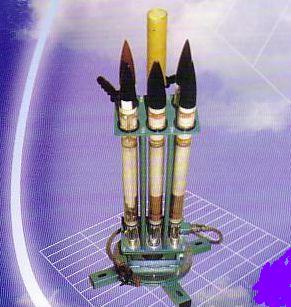 Beijing, Feb 08: Parts of China's parched north got light rain after authorities fired shells loaded with cloud-seeding chemicals into the sky, but there was no end in sight for its worst drought in five decades, the government said on Sunday.
Beijing, Feb 08: Parts of China's parched north got light rain after authorities fired shells loaded with cloud-seeding chemicals into the sky, but there was no end in sight for its worst drought in five decades, the government said on Sunday.Beijing has declared an emergency across China's north, where 4.4 million people lack adequate drinking water and winter wheat crops are withering.
"The drought situation will not be eased in the near future," said a national weather bureau statement.
Some areas got a sprinkling of rain and sleet Saturday after clouds were hit with 2,392 rockets and 409 cannon shells loaded with chemicals, the weather bureau said. It said clouds were thin and moving out of the region, making conditions poor for more rainmaking.
Rainfall in northern and central China is 50 percent to 80 percent below normal, according to the Flood Control and Drought Relief Office. The official Xinhua News Agency said the drought that started in November threatens up to half the wheat crop in eight provinces — Hebei, Shanxi, Anhui, Jiangsu, Henan, Shandong, Shaanxi and Gansu.
On Saturday, one county in Shaanxi got 0.9 inches (23 millimetres) of precipitation, the weather bureau said. Other areas received less than 0.2 inches (5 millimetres).
The state television midday news Sunday showed farmers with parched wheat seedlings that were barely ankle-high.
Beijing has promised CNY 86.7 billion (USD 12.6 billion) in aid to struggling farmers. That will add to the strain on government finances as it carries out a multibillion-dollar stimulus package to boost slowing economic growth.
The Agriculture Ministry said the drought is to blame for an outbreak of a fungal disease called stripe rust that attacks wheat. It said the disease can cut output by up to 40 percent.
Drinking water is being trucked to villagers and the government is launching a massive irrigation effort with water from rivers and wells.
Water Resources Minister Chen Lei said water levels
in the Yellow River, a key source for farms and a string of cities, are down 20 percent to 40 percent, the Communist Party newspaper People's Daily reported.
Across eight provinces, irrigation has brought water to about half the 11 million hectares (26.5 million acres) of drought-affected wheat crops, the Agriculture Ministry said Sunday on its Web site.
No comments:
Post a Comment